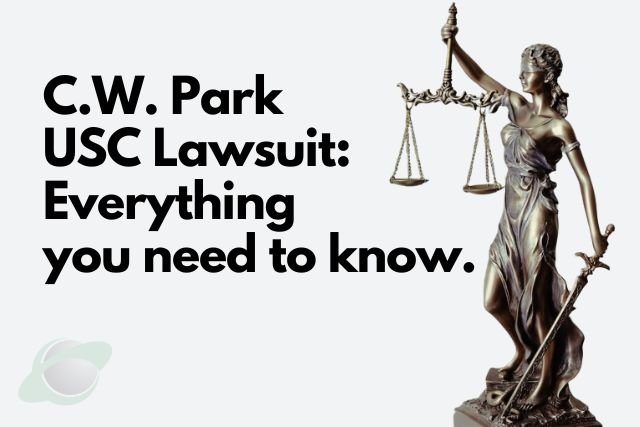Welcome to an extensive guide on the C.W. Park USC Lawsuit: Everything you need to know. In this article, we will explore the intricate details surrounding this controversy, offering you a comprehensive understanding of the case and its implications. From the origins of the lawsuit to the public’s response, we have all the information you need. So let’s dive in!
Allegations and Lawsuit: The Case Against Professor Choong Whan Park and USC
In a significant legal development, a former student of the University of Southern California (USC) has filed a lawsuit against Choong Whan Park, a tenured professor at the Marshall School of Business, as well as the university itself. The case alleges instances of sexual assault, discrimination, and institutional negligence, and has attracted widespread attention due to its potential implications for addressing sexual misconduct within academic institutions.
Context and Case History
The lawsuit, filed on January 7th, 2021, stems from a series of events dating back to 2018. The plaintiff, who remains anonymous and is referred to as “Jane Doe” in the court documents, alleges that she was sexually assaulted by Park during a mentorship program in the spring semester of her freshman year at USC. She further claims that she reported the incident to university officials, but no action was taken and Park was allowed to continue teaching and mentoring students.
In October 2019, a second female student filed a complaint against Park for sexual harassment and assault. This led to an internal investigation by USC’s Office of Equity and Diversity (OED) which found sufficient evidence to support the allegations. As a result, Park was placed on “immediate and indefinite leave” and banned from campus. However, the university did not terminate his employment or revoke his tenure.
USC’s Official Statement Regarding Prior Allegations
Significantly, the lawsuit asserts that USC was aware of Park’s misconduct beforehand. In 2018, an internal investigation conducted by USC determined that Park had been involved in inappropriate behavior with female students. Despite these conclusions, no significant disciplinary measures were implemented against him, a choice that the lawsuit argues facilitated subsequent misconduct.
People involved in the event
Plaintiff: Jane Doe, a former student of USC.
Defendant 1: Choong Whan Park, a tenured professor at the Marshall School of Business.
Defendant 2: University of Southern California.
Predicted Outcome
Legal experts assert that the plaintiff’s case is strong, particularly considering the supporting testimonies from other alleged victims. USC’s prior knowledge of Park’s conduct and their failure to act could significantly enhance Doe’s case. If successful, the lawsuit may result in Park being held accountable for sexual assault and discrimination, with potential compensatory and punitive damages. USC may also be held liable for negligence.
The Impact on USC and Higher Education
The lawsuit has prompted deep reflection within the USC community and among higher education institutions regarding the handling of sexual misconduct allegations. This case poses vital questions about the obligations of universities in safeguarding students and the repercussions of inadequately addressing such accusations.
USC’s Response After Allegations
To address mounting concerns, USC has introduced new policies and procedures to prevent and address sexual misconduct. These measures are part of a larger initiative to revamp the university’s approach to such matters, although their effectiveness is yet to be determined.
FAQs
Q: Is this the first lawsuit against USC for sexual misconduct?
A: No, there have been previous cases of sexual misconduct allegations against faculty and staff at USC.
Q: What is the statute of limitations for filing a lawsuit in cases like these?
A: The statute of limitations varies depending on the state and type of claim. In California, the statute of limitations for sexual assault is ten years from the date of the incident or three years after the discovery of the injury.
Q: How can students report incidents of sexual misconduct at USC?
A: Students can report incidents to USC’s Title IX office, which oversees issues related to gender-based discrimination and harassment. They can also seek support and resources through USC’s Office for Equity, Equal Opportunity, and Title IX. The university also has a confidential hotline available for reporting any concerns related to sexual misconduct.
In conclusion,
The lawsuit against C.W. Park and USC marks a critical juncture in the ongoing battle against sexual misconduct in higher education. It highlights the imperative for institutions to take resolute measures against such behavior and foster a safe environment for all students. The outcome of this case may have profound implications for how universities nationwide address similar allegations in the years to come.

